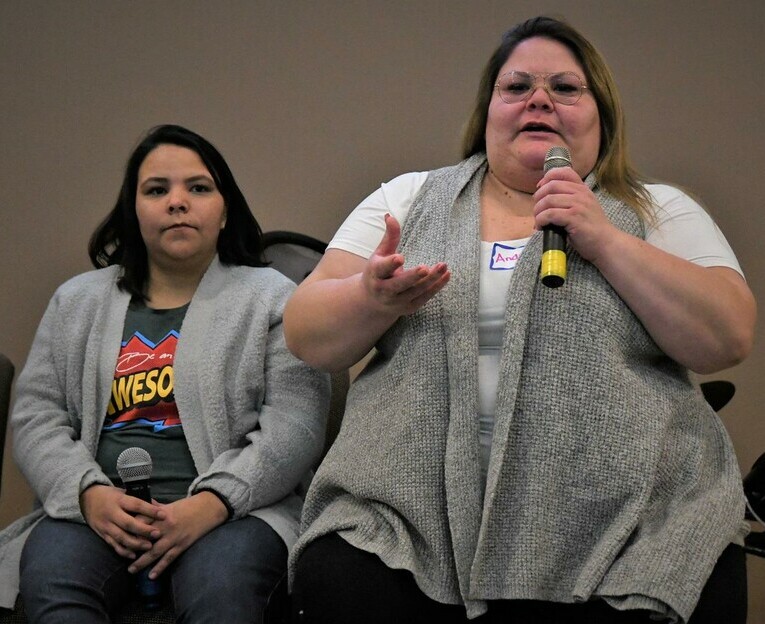Students learn to end stigma around mental health

Ending stigma around mental illness and mental health issues is a vital skill for people of any age.
Recently, students from Fort Vermilion School Division and surrounding First Nation community schools had an opportunity to learn more about this issue and develop these skills to help with their own mental wellness journeys as well as those of their friends and families. On March 4, close to 100 students attended the Headstrong Summit in the High Level Christian Fellowship Church in High Level.
They came together to talk about and learn about the stigma around mental illness. The idea was to build their capacity so they could go back to their schools and do activities in their schools to reduce stigma.
The event featured a keynote address and speakers with lived experience talking about their recovery process and how they maintain their mental health. There was also an action planning piece where the students came together at the end of the day to do some planning for when they went back to their schools.
“Ideally, the day will impact these kids on a personal level and informs how they move forward in the world,” said Carrie Demkiw, Regional Manager for FVSD Regional Collaborative Services Delivery. “The planning is around what they take back to their schools, but hopefully that learning will infiltrate different parts of their lives as well.”
“It’s not building skills to council or be interventionist. It’s really about building skills to help these kids recognize if someone is struggling, and to help them find some help,” she said. “It’s also about being supportive in that journey.”
Headstrong is a national youth leadership program with a focus on eliminating stigma around mental illness and mental health struggles.
“Since 2014, we have engaged thousands of young people across this country,” said Nathan Ip, Provincial Coordinator of Headstrong for Mental Health Commission of Canada. “To not only learn about mental health and how to support their own mental wellness, but also the impact of stigma and how to reduce it.”
The students also had the opportunity o take what they learned back to their schools to share with fellow students.
“Young people today are really empowered to be mental health champions in their own communities,” said Ip. “We know it works. We know it has a cascade effect based on the research we have done. These efforts have really grown over the years.”
Ip noted it is vital to engage youth about mental health because by the age of 40, more than 50 per cent of Canadians will have experienced a mental health struggle. More than seven million Canadians will be diagnosed with a mental health struggle or mental illness this year, and the onset of most mental illness typically occurs during adolescence.
“This is a critical time for us to ensure young people are supported to take care of their mental wellness and their mental health,” he said. “In the future, if they do encounter struggles, they are able to support their own well-being and the well-being of their peers.”
The focus on recovery for the day will also involve some “myth-busting” around mental health and mental health practices. This includes learning about the impact of stigma and stigmatizing language, as well as what they can do to support their community in reducing stigma and supporting their communities. They also learned how to seek help and how to direct their peers to appropriate support.
In the afternoon, there was a panel where these speakers and the keynote speaker answered questions directly from the students.
“At the end of the day, students take all that they’ve learned during the day, and they think about what they can do in their own communities to promote a culture of mental wellness,” said Ip. “Young people, staff, communities, and their families can talk about mental health openly in a way where there isn’t any shame in getting help for your mental health struggles.”
This work highlights the importance of changing attitudes toward mental health that often times can be influenced by family or community.
“Young people can be change agents and change makers,” said Ip. “When they understand the impact of stigma and why it is important to talk about mental health, there is a cascade effect not only in their schools and communities, but their families as well.”
It is important for people to realize that they can have mental health struggles and still live a positive, successful life. And there is no shame for reaching out for help. It is OK to not be OK. It is hoped, through the summit, young people will feel comfortable enough to be open about their struggles and reach out for that help, and to assist their peers to reach out that help as well.
























